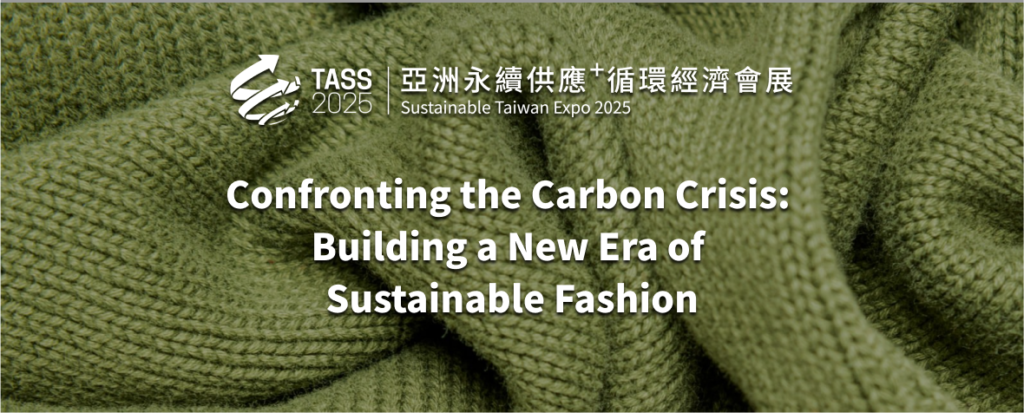
As a major driver of the global economy, the fashion industry is also one of the highest carbon-emitting sectors. Statistics show that the fashion industry accounts for 10% of annual global carbon emissions, and without decisive action, this figure could rise to 26% by 2050, placing enormous pressure on climate change efforts. In 2018, the United Nations launched the Fashion Industry Charter for Climate Action, setting targets to reduce emissions by 30% by 2030 and achieve net-zero by 2050 in order to pave the way toward a sustainable future.The fashion industry operates on a linear economic model, with most garments incinerated or downcycled at end-of-life. Less than 1% are truly recycled into new clothing due to mixed material sorting challenges, low consumer participation, and inadequate recycling infrastructure.
Taiwan’s Solution in the Spotlight
Taiwan has leveraged its technological strengths to become a global leader in textile recycling. As Lin Der-Sheng, Chief Secretary of the Industrial Development Administration, Ministry of Economic Affairs, highlighted at TASS2024: “Taiwan has achieved remarkable results in turning waste into usable products. For example, many moisture-wicking garments worn by athletes are made from recycled PET bottles, all made possible by Taiwanese technology.”
Taiwan’s recycling technology dissolves old clothing containing at least 70% polyester and regenerates it into new fibers—achieving a true “clothes-to-clothes” model. Domestically developed technologies convert discarded textiles into high-quality recycled polyester pellets while reducing carbon emissions by over 60%. Taiwan’s optical and AI-powered sorting systems have boosted recycling efficiency to 740 metric tons per year with 90% accuracy, solving key process bottlenecks. These innovations provide valuable models for the global fashion industry’s sustainable transition.
Booth Registration for TASS2025 Sustainable Taiwan Expo Now Open
In response to the global net-zero movement, TASS2025 debuts new Carbon Reduction Technology and Green Innovation zones, showcasing cutting-edge energy-saving technologies, AI-driven sustainable solutions, and green innovations. TASS2025 invites companies to seize transformation trends and lead in carbon reduction technology and green supply chain deployment.

